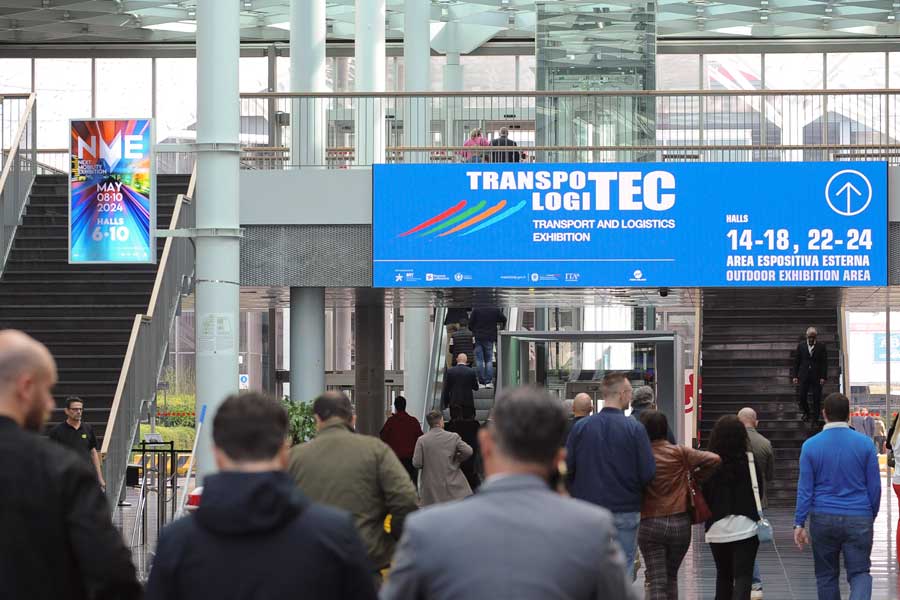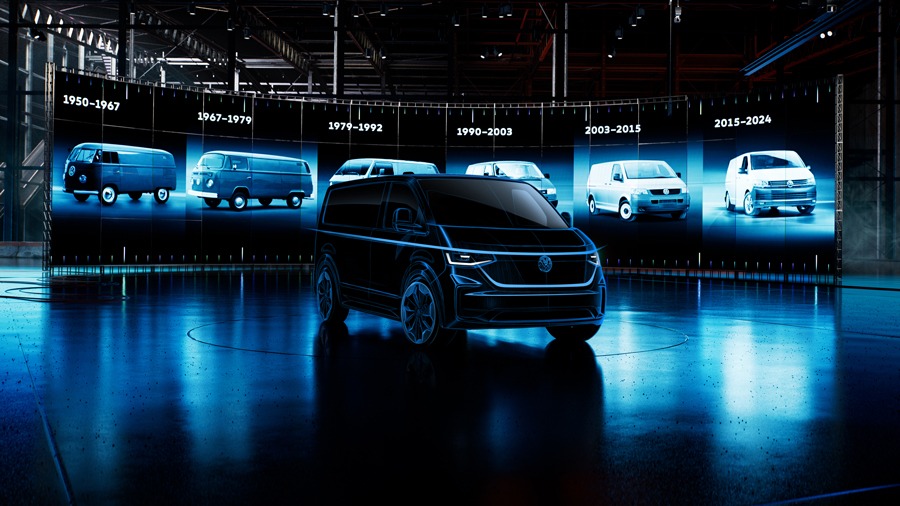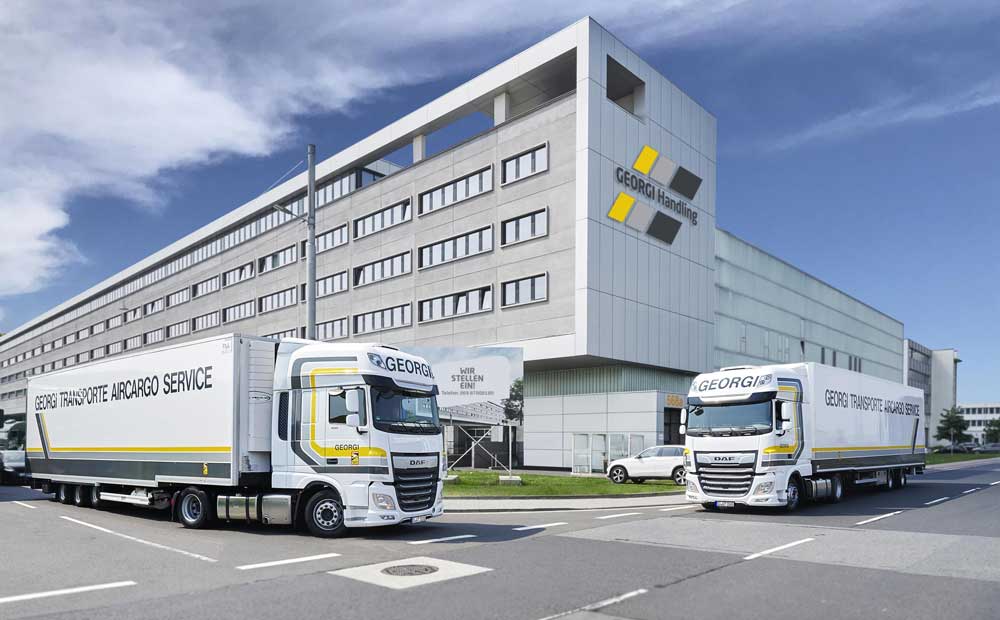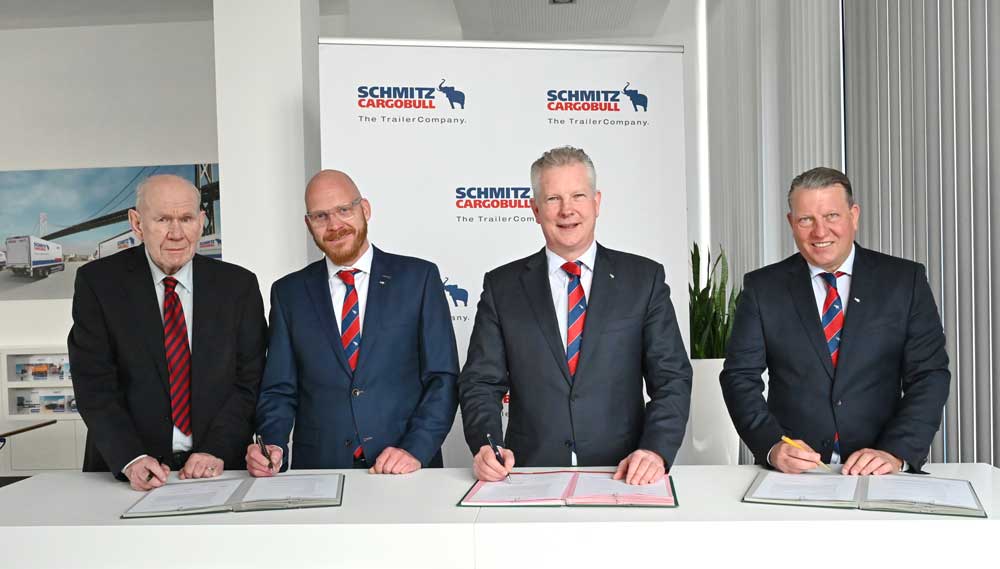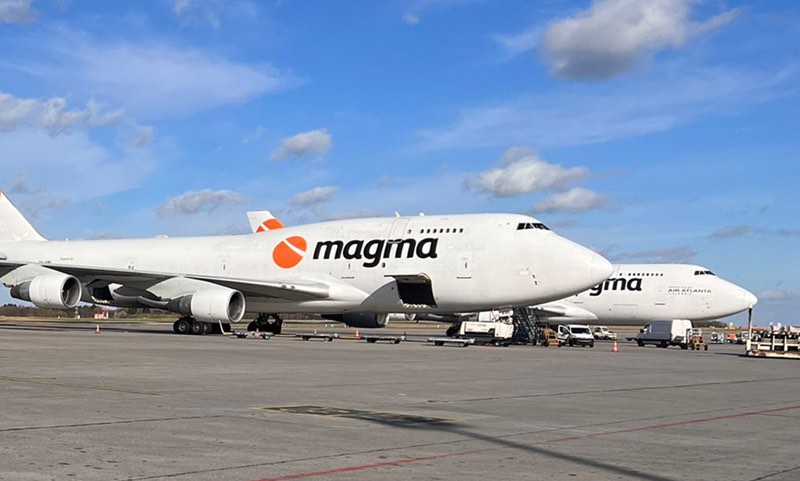Just as the European Union (in spite of conflicting opinions) was confirming the roadmap for the reduction of emissions from heavy transport, at Fiera Milano the spotlight at Transpotec Logitec turned to innovation, potential and the needs of road haulage and logistics operators as Italy’s leading logistics and road transport event attracted the attention of all industry stakeholders and numerous institutional representatives.
Holding the event concurrently with NME-Next Mobility Exhibition, the event dedicated to the sustainable mobility of passengers, proved successful. Despite representing two distinct sectors, both events share significant challenges such as the energy transition, digitalisation and staff shortages, which were at the forefront of the discussions.
Thanks to 539 participating companies and a comprehensive programme of conferences, Transpotec and NME transformed Fiera Milano into a hub of ideas and innovation for mobility issues and challenges. The events attracted over 33,000 professionals from 62 countries.
Transpotec: The market’s choice for world-first previews, product innovation and key debate at every level
Transpotec Logitec offered an accurate reflection of a sector that is now fully aware of the strategic role it plays in society and the national economy, given that the efficiency of the supply chain in key sectors depends on it.
This is a market that is undergoing profound transformation. In the opening conference, Italy’s National Register of Road Hauliers provided an overview of the sector as it currently stands: in Italy there are about 100,000 road transport companies, with 14,172 Community licenses and 925,589 CQCs (driver licenses), 250,000 fewer than in 2019. Meanwhile, the third-party vehicle fleet in Italy increased from 795,000 units in 2020 to 853,363 in 2023, an increase of 7.34%.
During its conference, Federservice also highlighted the growing phenomenon of Italian industry aggregation that is leading to a decrease in the number of owners (today they represent 46% of the total), with a rise in more structured companies. In fact, in the last ten years, the number of companies has decreased by 20.8%, from 101,935 to 80,687 units, with 21,248 companies disappearing.
The nature of the market is changing, but so have the needs of customers, who require greater flexibility in the solutions offered. As a result, more companies are combining traditional road transport with additional services such as shipping and multimodality as they move towards offering logistics as an integrated activity within transport operations. At the same time, firms continue to commit to an environmentally, economically and socially sustainable transport system.
The key theme of this edition was the energy transition. There was extensive debate on methods and timescales to achieve the European decarbonisation goals, from which it emerged that an assessment of a mix of technologies would be required to overcome the sustainability challenge. Heavy vehicle manufacturers – with all eight truck European companies present for the first time – proposed fully electric solutions, as well as those powered by biomethane and HVO. Initial hydrogen offerings were also in evidence – a green solution, but one still awaiting the development of an adequate infrastructure network.
There were many Italian and European vehicle previews, in both the heavy and light categories – with electric dominating the latter – but there was also no lack of world-first previews.
But it wasn’t just about vehicles. There were innovative solutions and products on show across all sectors with an increasing focus on low environmental impact and “tailor-made” offerings, from trailers and logistics services to fuels and components, which were once again the centrepiece of the Aftermarket Village organised by DBInformation.
Digitalisation also proved to be a universal theme, With the support of artificial intelligence and data analysis, it is helping to achieve energy transition and safety goals.
Strategies to draw young people to the sector
One of the hottest topics, which sparked debate at various events, was the shortage of personnel. Federservice stated that in Italy there were more than 400,000 drivers who did not renew their driver’s qualification card between 2019 and 2024 – especially those between 30 and 50 years old. Unexpectedly, however, the number of drivers under 25 is growing, increasing by about 66% from 2019 to today.
And it is young people, the group that will play the biggest role in the future, who are being targeting by transport associations and companies to breathe new life into the sector.
Fai Conftrasporto, which launched its Manifesto for Europe at the exhibition, listed the shortage of staff – with 20,000 drivers alone needed in Italy – as one of the four areas in which to take action, with European legislation on professional training requiring updating.
Anita presented the Road Haulage and Logistics Young Persons Observatory at the exhibition, created to seek practical solutions to what is a genuine emergency: in Italy the period between 2019 and 2023 saw an increase in the gap between labour demand and supply of more than 15 percentage points, from 15.1% to 30.6%. Last year, in fact, drivers came second in the ranking of the roles that were most difficult to recruit for.
Finally, many students from higher technical education schools participated in the Transpotec Logitec round table where they discussed positive collaboration between educational institutions and companies – a practical response to market needs.
Important “birthdays”
Underlining Transpotec’s visibility, the exhibition was also an opportunity to celebrate some important anniversaries. Italy’s National Register of Road Hauliers celebrated 50 years since its establishment, during which it has played a central role in the evolution of road haulage from the post-war period to today. FIAP, the Italian Federation of Professional Truckers, meanwhile, celebrated 75 years of activity alongside companies in its Logistic Village, an area that for four days offered an important platform for discussion and professional development for business owners and managers in the sector, with numerous institutional figures attending.
The next edition of Transpotec Logitec is in two years’ time, from 13 to 16 May 2026, once again in conjunction with NME.


